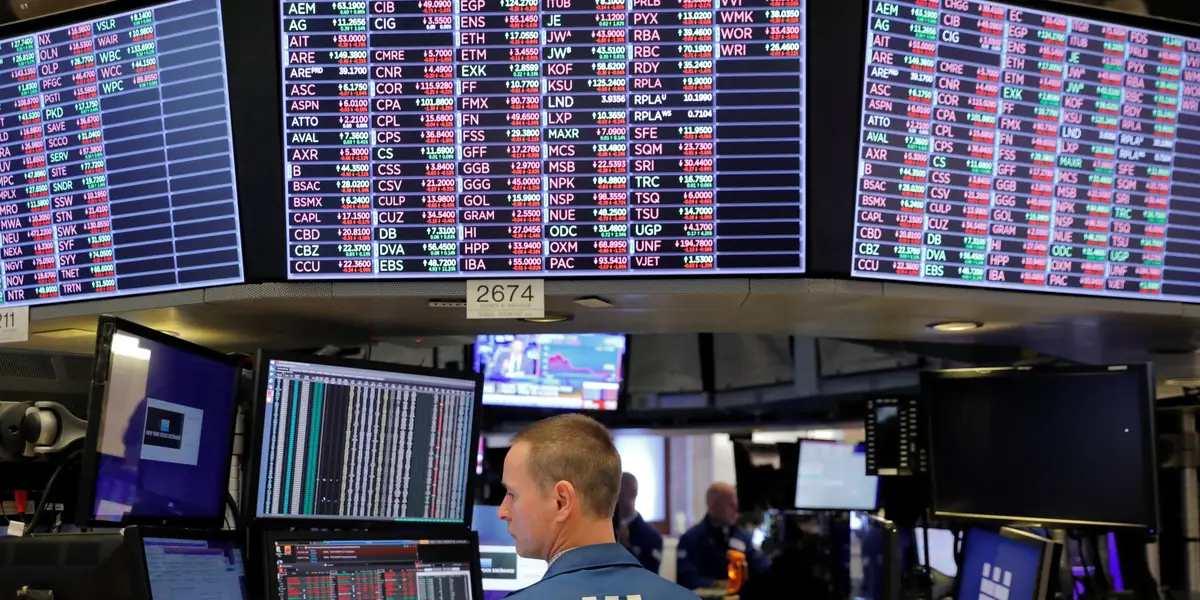
Stocks are at risk from the Iran-Israel conflict. Here’s how quickly the S&P rebounded from the greatest shocks since WWII.
How did your country report this? Share your view in the comments.
Diverging Reports Breakdown
Stocks are at risk from the Iran-Israel conflict. Here’s how quickly the S&P rebounded from the greatest shocks since WWII.
The S&P 500 has shrugged off Israel’s conflict with Iran so far, trading only 1% lower as of Tuesday’s close. Even if the benchmark stock index does slide, history suggests it will come roaring back. Deutsche Bank Research strategists say the typical pattern is for the index to pull back about -6% in 3 weeks but then rally all the way back in another 3. Recovering from the oil crisis of 1973 took 1,475 trading days or nearly six years, per Deutsche’s table. It’s too soon to say whether the Israel-Iran conflict will join the list of most impactful geopolitical events for the S&p. The index tends to recover quickly from these kinds of disruptions, though it’s worth remembering the index can fall sharply and stay underwater for years.
The S&P 500 has shrugged off Israel’s conflict with Iran so far, trading only 1% lower as of Tuesday’s close. Even if the benchmark stock index does slide, history suggests it will come roaring back.
“The escalation in the Middle East brings into focus the playbook for geopolitical shocks and risks, which entails sharp equity selloffs, which is intuitive, but also surprisingly quick recoveries, which is not,” Deutsche Bank Research strategists Parag Thatte and Binky Chadha said in a recent note.
“The typical pattern is for the S&P 500 to pull back about -6% in 3 weeks but then rally all the way back in another 3,” they wrote, attaching a table showing how the index has fared during 32 previous geopolitical events.
Related video
Jim Reid, Deutsche’s global head of macro research, said in a note this week that a stronger market reaction could be sparked by direct US involvement in the clash or targeting of Iran’s oil production or shipping infrastructure — or Iran deciding to close the Strait of Hormuz, which accounts for 20% of global daily trade flows.
Bouncing back
The Deutsche strategists’ table offers a fascinating look at how the stock market has reacted to many of the most significant geopolitical events of the past century.
The S&P, and the index that preceded its launch in 1957, has only crashed more than 20% following two geopolitical incidents. It fell about 21% after Adolf Hitler’s Germany annexed Czechoslovakia in March 1939, and by 26% after the Nazis invaded France in May 1940.
The benchmark tumbled more than 15% after the Israel-Arab War broke out in October 1973, prompting an oil embargo that blocked crude exports to the US and other nations, and after the First Gulf War began in August 1990.
The S&P tanked by more than 10% on four occasions: North Korea’s invasion of South Korea in June 1950, the 9/11 attacks in September 2001, Pearl Harbor in December 1941, and the Iranian hostage crisis in November 1979.
Taking the median event, the S&P typically falls by 6% over 17 trading days and then rebounds fully over the next 16 trading days. It tends to rally nearly 15% from its trough over a 12-month period.
However, a swift bounceback is not guaranteed. Recovering from the oil crisis of 1973 took 1,475 trading days or nearly six years, per Deutsche’s table — with the S&P falling a further 28% from its trough over 12 months.
The index also fell 15% from its trough in the year after the Berlin Wall was built in August 1961, and 13% in the year after President Nixon’s impeachment proceedings began.
At the other extreme, the benchmark soared by about 42% from its trough in the 12 months after the Israel-Hamas conflict began in October 2023.
It jumped more than 30% in the year after North Korea invaded South Korea in June 1950, the Iraq War broke out in March 2003, and the Cuban Missile Crisis erupted in October 1962.
It’s too soon to say whether the Israel-Iran conflict will join the list of most impactful geopolitical events for the S&P. Reviewing historical market reactions may relieve investors as the index tends to recover quickly from these kinds of disruptions, though it’s worth remembering the index can fall sharply and stay underwater for years.
